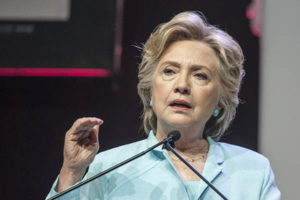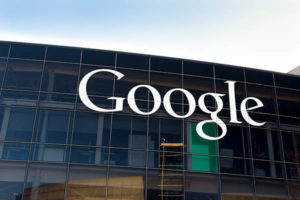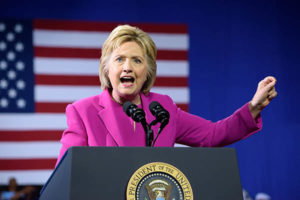The Economic Benefits of Hosting The Super Bowl

The Economic Benefits of Hosting the Super Bowl
Written by Traci Bullock.
What is the Super Bowl?
Arguably, the most popular US sporting event of the year. The Super Bowl features the best two teams from the NFL’s American Football Conference (AFC) and National Football Conference (NFC) competing for the Vince Lombardi Trophy, named after the legendary Green Bay Packers head coach. The game is commonly referred to as the “biggest event in American sports” and attracts a large international audience.
With millions of people tuning in to watch the game on television, the halftime show, which typically features a major musical act, is also highly anticipated, as are the TV commercials.
Determining the Location
Before planning for the Super Bowl can start, deciding where it will be played needs to happen. Determining the location of the Super Bowl is done through a bidding process where cities that have NFL stadiums or are planning on building one submits a bid. The NFL then reviews the bids based on several factors: quality of the stadium and facilities, available hotels and transportation, the ability of the city to accommodate visitors, and any financial incentives.
Infrastructure Improvements
Once the location for the Super Bowl has been decided, years in advance, improvements to the city start immediately. These improvements typically include renovating the stadium, building new hotels, and improving transportation systems. Government spending in the host city increases in order to pay for the infrastructure changes.
The most significant improvement made in the city is often in transportation. Local policymakers see the importance and long term effect of having an effective and sustainable transportation service. The consequent investment in transportation benefits the local economy and small businesses for years after the game.
Economic Impact on Businesses
The most significant economic benefits of the Super Bowl come to small businesses. The influx of visitors to the host city for the Super Bowl can increase customer traffic for small businesses, such as restaurants, bars, and retail stores. Increased customer traffic can lead to increased sales and profits for small businesses, especially those located in or near the areas where Super Bowl events and activities occur.

Hosting the Super Bowl can also provide small business owners with valuable networking opportunities, as they can interact with other business owners, local government officials, and industry experts. These interactions help build relationships, foster collaboration and open up new business opportunities.
The impact on all local companies in the host city is an increase in revenue due to the influx of customers and sales. However, the increase in consumers also comes with increased costs due to the need for more employees and the maintenance of facilities. Once the game is over, employment reverts to where it previously was unless there is a need to maintain it, such as tourism.
On average, visitors will spend $200-$300 per person each day. Along with other events occurring during Super Bowl week, the state of Arizona expects to benefit by over $1 billion dollars.

Long Term Economic Benefits
The long term economic benefits of hosting the Super Bowl can vary depending on several factors, including the size and resources of the host city and the specific initiatives undertaken to leverage the event.
One example of a long term benefit is increased tourism. Increased tourism can bring economic benefits to the city, such as an increase in money spent on local goods and services, and new jobs in the tourism industry. It can also help to boost the local economy and support sustainable growth.
Hosting the Super Bowl provides a city with increased exposure to a worldwide audience, allowing it to showcase its attractions, culture, and amenities to millions of viewers. These attractions can become tourist hot spot that leads to an increase in the local tourism industry.
In addition, the influx of visitors to the host city for the Super Bowl can introduce new people to the city, many of whom may return for future visits or recommend the city to others. Finally, the city’s exposure can result in increased tourism for the city in the years following the event.

Another example of a long term benefit for the host city is the attraction of new businesses. The city’s exposure due to the Super Bowl enhances the city’s reputation as a destination for major events. In addition, it contributes to the city’s image as a desirable place to live, work, and visit.
With this new reputation and the successful hosting of a Super Bowl, the host city has demonstrated itself capable of fostering a favorable business environment by creating a sense of excitement, energy, and investment. This promising environment and reputation can attract new businesses to the city and contribute to the growth of the local economy.
For more Super Bowl information from GROCO.com “click here” for articles and Alan Olsen’s American Dreams interviews of one of Monday Night Football’s pioneers, a Super Bowl champion, and more.
Written by Traci Bullock
We hope you found this article helpful.
To receive our free newsletter, contact us here.
Subscribe to our YouTube Channel for more updates.
If you have questions or need expert tax or family office advice that’s refreshingly objective (we never sell investments), please contact us or visit our Family office page or our website at www.GROCO.com. Unfortunately, we no longer give advice to other tax professionals gratis.
Considerately yours,
GROCO, GROCO Tax, GROCO Technology, GROCO Advisory Services, GROCO Consulting Services, GROCO Relationship Services, GROCO Consulting/Advisory Services, GROCO Family Office Wealth, and GROCO Family Office Services.
Want to Avoid Taxes in Retirement – Try This
There’s been no shortage of thoughts and opinions regarding Donald Trump’s tax returns since the election process began, especially since his leaked return hit the mainstream media a few weeks ago. One could argue at length regarding those numbers and whether or not they paint a positive picture of Trump and his finances. However,…
How Would Proposed Tax Plans Affect the Country’s Economy?
We’re just days away from the election and it’s likely that most Americans will just be happy that it’s finally over, no matter whom or what they voted for. However, there are some very important things at stake in this election, including how each candidate’s tax proposals would affect our nation’s economy, as well…
How Much Are Fortune 500 Companies Saving in Taxes?
It’s a well-known fact that many of the richest companies in America have become so financially successful thanks in large part to the tax-savings methods they employ, not the least of which is keeping large amounts of income overseas. These American companies have no problem doing business stateside, but because the U.S. has some…
Trump, Clinton and the Wealthy – What’s at Stake?
Trump, Clinton and the Wealthy – What’s at Stake? The 2016 presidential election is finally winding down and in a few weeks we’ll know who our next president is going to be. This election cycle has been very heated and the two candidates have been very polarizing. While most people at least have a routing…





